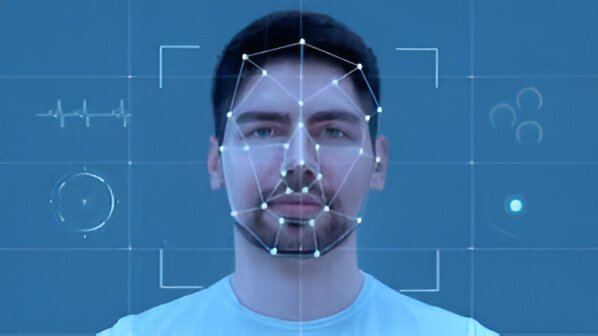
What if you could learn more from a selfie than the way you look? What if you could learn life-saving things about your health? In a revolutionary study published in The Lancet Digital Health, scientists at Mass General Brigham have created an artificial intelligence tool called FaceAge that predicts an individual’s biological age based on facial characteristics. This instrument has demonstrated an impressive capacity to forecast survival results in cancer patients, and it may represent a turning point in the way we are dealing with personalized treatment and disease prognosis.
The Science of FaceAge
FaceAge is a machine-learning program trained on over 58,000 photos of healthy faces from people over age 60. The AI was taught to pick up on the subtle characteristics of the face, such as skin texture, wrinkles, and bone structure, to estimate how old someone biologically is, which better measures their bodily condition than chronological age does. Unlike paper age, biological age takes into consideration genetics, lifestyle, stress levels, exposures to the environment, and even smoking and drinking habits.
Applied to more than 6,000 cancer patients in the U.S. and the Netherlands, FaceAge yielded some intriguing results. The measure concluded that cancer patients, on average, looked about five years older biologically than their chronological age. This “older-looking” FaceAge correlated strongly with worse survival.
AI Outperforms Human Judgement
To test the tool’s predictive power, researchers asked 10 clinicians to estimate short-term life expectancy from 100 patient photographs. The results were close to random when based on photos alone. However, when clinicians had access to clinical charts and FaceAge predictions, their ability to forecast six-month survival improved drastically from 61% to 80%.
“Individuals with FaceAges that are younger than their chronological ages do significantly better after cancer therapy,” said Dr. Hugo Aerts, director of the Artificial Intelligence in Medicine (AIM) program at Mass General Brigham and co-senior author of the study.
The implication? Our physical appearance, when analyzed objectively through AI, can offer powerful clues about internal health conditions, resilience, and treatment response.

Biological Age as a Biomarker
Biological age is a more accurate measure of how well the body is functioning compared to simply counting years lived. It’s influenced by DNA methylation patterns, telomere length, and gene and protein expression—essentially, the cellular wear and tear accumulated over time.
Traditionally, doctors have incorporated signs of aging like frailty, appearance, and energy levels into their assessments, but these judgments are inherently subjective. FaceAge provides a standardized, data-driven approach to evaluating these signs, transforming the face into a biomarker that can guide clinical decision-making.
Dr. Ray Mak, co-senior researcher, emphasized the broader potential of the technology: “This opens the door to a whole new realm of biomarker discovery from photographs, and its potential goes far beyond cancer care or predicting age.”
Revolutionizing Patient Care
The integration of FaceAge into clinical practice could revolutionize how oncologists approach treatment. For instance, two patients of the same chronological age may respond very differently to therapy. A 75-year-old whose biological age is closer to 65 might tolerate aggressive treatments better than a 60-year-old who appears biologically 70. In this way, FaceAge allows doctors to better personalize care based on the body’s actual condition rather than its calendar age.
This tool could also help doctors initiate more informed conversations with patients regarding prognosis and lifestyle changes. By empowering individuals with a clearer understanding of their health status, FaceAge may inspire them to adopt healthier habits that could improve treatment outcomes.
Looking Ahead
The potential applications of FaceAge aren’t limited to cancer care. Researchers are optimistic about its use in managing other chronic conditions and even predicting risks associated with major surgeries. The technology offers a non-invasive, low-cost, and accessible means of assessing physiological health, and all it requires is a simple photo.
As AI continues to evolve, it’s becoming a powerful ally in medicine, not a replacement for doctors but a partner enhancing their ability to make precise, life-saving decisions. The FaceAge study is just one example of how artificial intelligence is no longer a futuristic concept; it’s here, and it’s already changing lives.
So, next time you snap a selfie, consider this: it might not just be capturing your smile but a snapshot of your future health.









